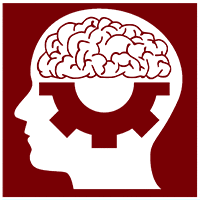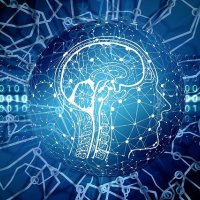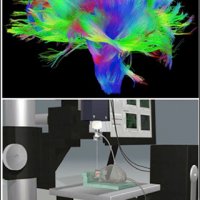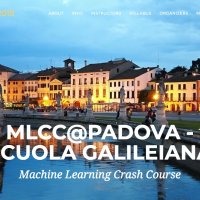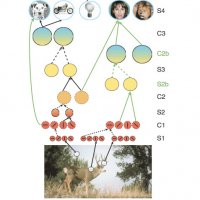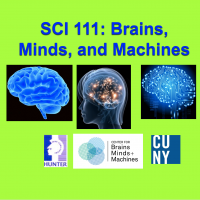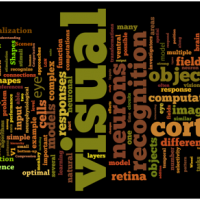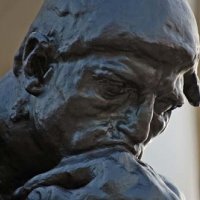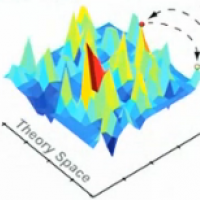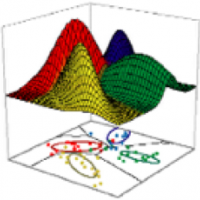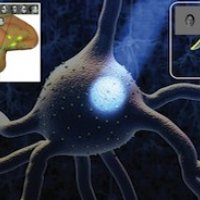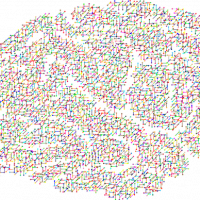LH - Courses
Online Courses | Summer Courses | Residential Courses
Explore materials from MIT courses published on MIT OpenCourseWare, view content from summer courses on machine learning and the science of intelligence, or access resources from residential courses taught by faculty of the Center for Brains, Minds, and Machines at various partner institutions. Courses are designated as aimed primarily at a graduate (G) or undergraduate (U) level, or appropriate for both a graduate and advanced undergraduate audience (G/U).
Online Courses
Explore human and machine intelligence through the perspectives of cognitive science, neuroscience, computation and AI. Materials are drawn from the Brains, Minds, and Machines Summer Course offered by faculty of the Center for Brains, Minds and Machines.
This course explores the study of intelligence, how it is produced by the brain and how it can be replicated in machines, integrating experimental observations from neuroscience and cognitive science with computational modeling to elucidate the architecture of intelligence.
Explores how neuroscientific methods can be used to study the brain mechanisms underlying moral behavior and moral evaluation, engaged in how we decide whether an action is morally wrong, how we choose to do what is right, and when and why we punish wrong-doers.
Explores cutting-edge neurotechnology essential to advances in all aspects of neuroscience, including improvements in existing methods and development of new paradigms, covering electrophysiology, light microscopy, cellular engineering, optogenetics, electron microscopy, MRI/fMRI, and MEG/EEG.
Materials to support a series of laboratories that provide experience with basic techniques for conducting systems neuroscience research, including anatomical, neurophysiological, and data acquisition and analysis techniques, and how they are used to study nervous system function.
Introduces knowledge representations, problem solving methods, and learning ideas used to engineer intelligent systems and to account for aspects of human intelligence from a computational perspective.
Summer Courses
This three-week course provides an intensive introduction to the study of intelligence - how the brain produces intelligent behavior and how it may be replicated in machines. Lectures, tutorials, and projects integrate the perspectives of neuroscience, cognitive science, computer science, and AI.
This one-week course provides an introduction to the fundamental methods of modern Machine Learning, spanning the theoretical foundations to essential algorithms, with lectures complemented by practical lab sessions.
RegML is a 5-day advanced machine learning course including theory classes and practical laboratory sessions. The course covers foundations as well as recent advances in Machine Learning with emphasis on high dimensional data and a core set techniques, namely regularization methods.
Residential Courses
Residential courses vary considerably in the range of materials linked here, with some providing a course description, syllabus, and readings, and others including lecture slides, assignments, project ideas, lecture videos, or supporting material for hands-on computer activities. Again, courses are designated as aimed primarily at a graduate (G) or undergraduate (U) level, or appropriate for both a graduate and advanced undergraduate audience (G/U). Materials for additional courses, including some taught at other partners of the Center for Brains, Minds, and Machines, will be added here in the future.
Central to human intelligence is the ability to acquire, structure, abstract, and apply knowledge to perform effectively in a given situation and generalize to new situations. How is this behavior produced by the brain and how can it be replicated in machines? This course examines these questions through the integration of neuroscience, cognitive science, and computational modeling.
This course is designed around three central questions: What is in your head? How does that make you behave? How could we build a machine like that? The processes of visual recognition, spatial navigation, and language understanding are explored from the perspectives of cognitive neuroscience, cognitive psychology, and artificial intelligence.
This course examines how circuits of neurons in visual cortex represent and transform visual information, covering the following topics: functional architecture of visual cortex, lesion studies, physiological experiments in humans and animals, visual consciousness, computational models of visual object recognition, and computer vision algorithms for recognition.
Analyzes seminal work directed at the development of a computational understanding of human intelligence, such as work on learning, language, vision, event representation, commonsense reasoning, self reflection, story understanding, and analogy. Reviews visionary ideas of Turing, Minsky, and other influential thinkers. Examines the implications of work on brain scanning, developmental psychology, and cognitive psychology.
Introduction to computational theories of human cognition and computational frameworks that could support human-like artificial intelligence (AI). The central questions are, what is the form and content of people’s knowledge of the world across different domains, and what are the principles that guide people in learning new knowledge and reasoning to reach decisions based on sparse, noisy data?
"What I cannot create, I do not understand." – Richard Feynman
This course applies Richard Feynman's dictum to the brain, by teaching students how to simulate brain function with computer programs. Special emphasis is placed on how neurobiological mechanisms give rise to cognitive processes like learning, memory, decision-making, and object perception. Students learn how to understand experimental data through the lens of computational models, and ultimately how to build their own models.
This course provides a tour of foundational topics in learning from a theoretical perspective. It covers a diversity of learning processes, aiming for breadth over depth (although it inevitably neglects several important forms of learning). Each meeting will consist of student-led presentations of two papers. Experience with computational modeling is not required, but students should have some familiarity with basic math (algebra and probability).
Foundations and recent advances of machine learning in the framework of statistical learning theory, with a focus on regularization techniques key to high-dimensional supervised learning. Topics include regularization networks and support vector machines, data geometry and sparsity, feature selection, structured prediction, multitask learning, unsupervised learning of data representations, deep learning theory.
Surveys the core perceptual and cognitive abilities of the human mind and asks how these abilities are implemented in the brain. Key themes include the representations, development, connectivity, interspecies homologies, and degree of functional specificity of particular brain regions. Also emphasizes the methods available in human cognitive neuroscience, and what inferences can and cannot be drawn from each.
Covers innovate technologies for brain analysis and engineering, for accelerating the basic understanding of the brain, and leading to new therapeutic insight and inventions. Using physical, chemical and biological principles to understand technology design criteria governing ability to observe and alter brain structure and function. Topics include optogenetics, noninvasive brain imaging and stimulation, nanotechnologies, stem cells and tissue engineering, and advanced molecular and structural imaging technologies.
Examines recent work applying computational models to mental disorders, formalizing psychopathy in terms of breakdown in fundamental neurocognitive processes, linking normal and abnormal brain function within a common framework. Topics include schizophrenia, autism, Parkinson’s, depression, obsessive-compulsive disorder, and attention-deficit hyperactivity disorder.

